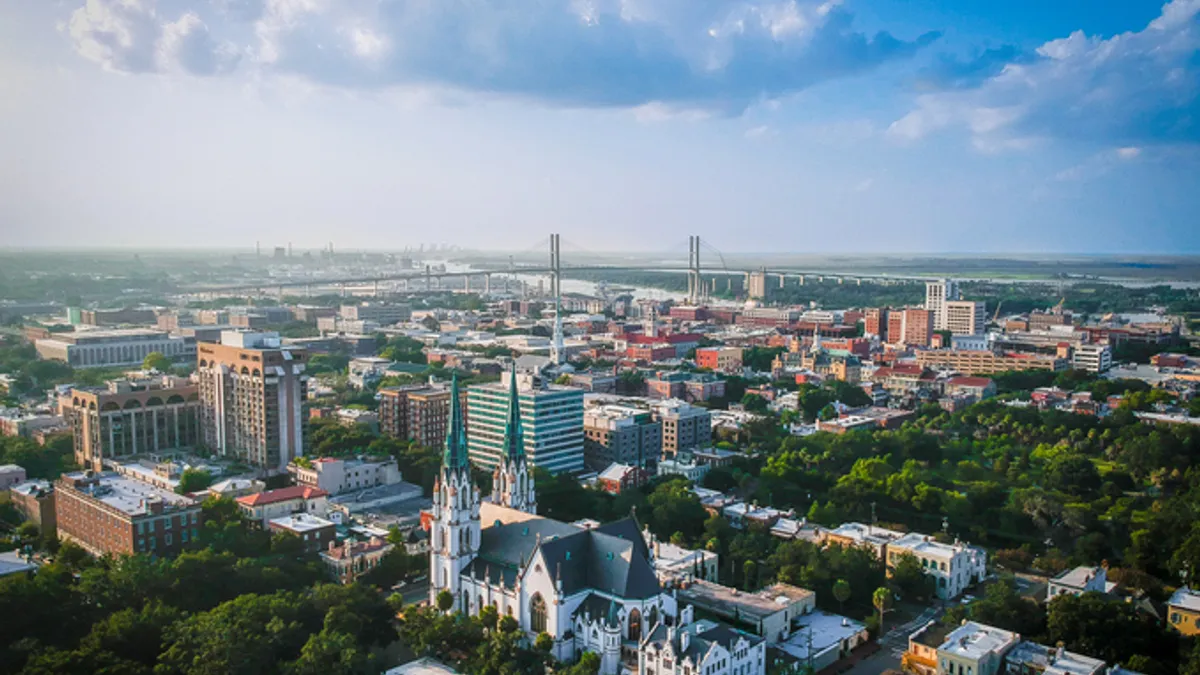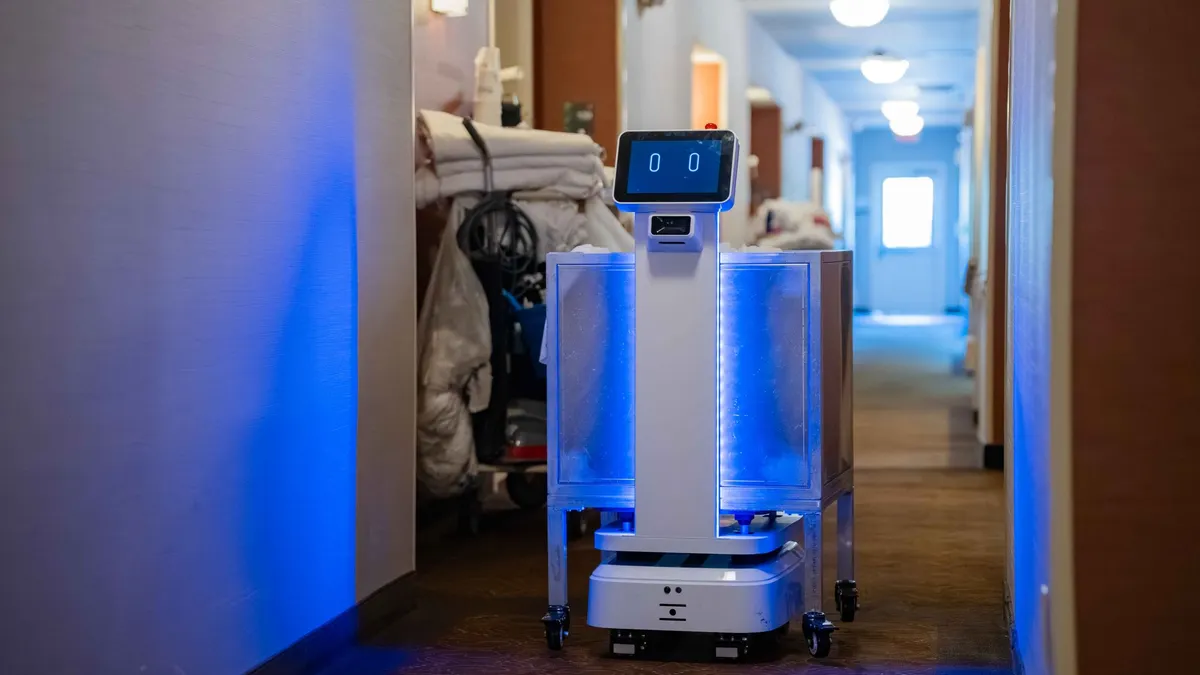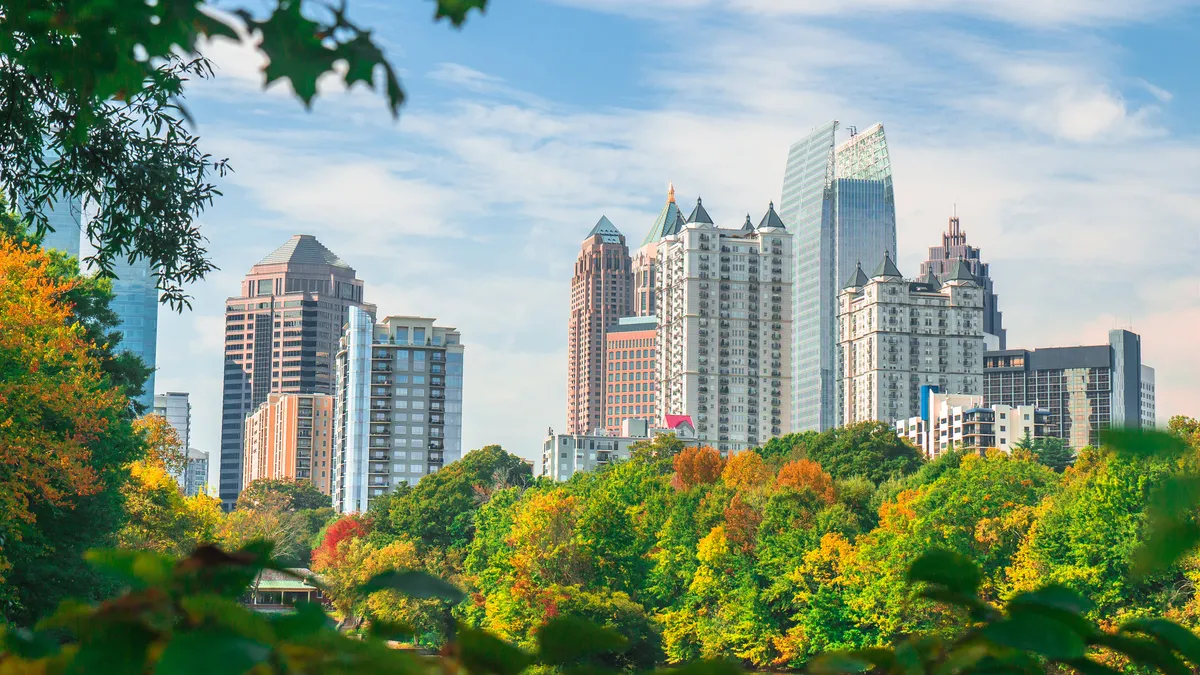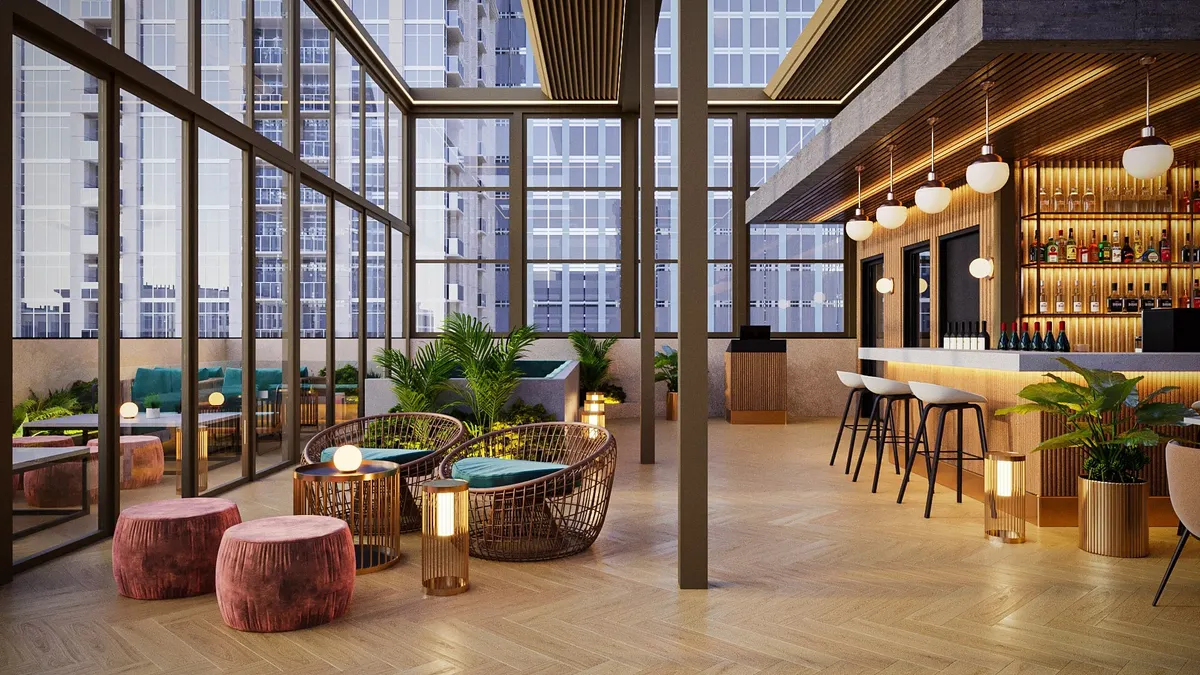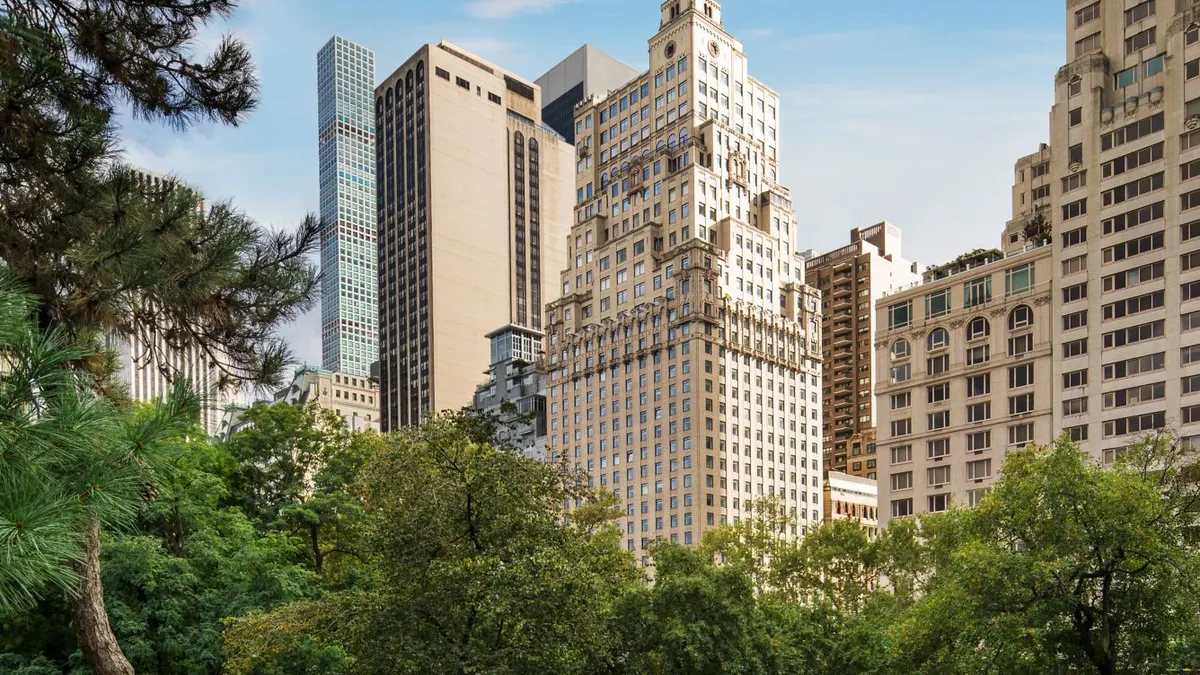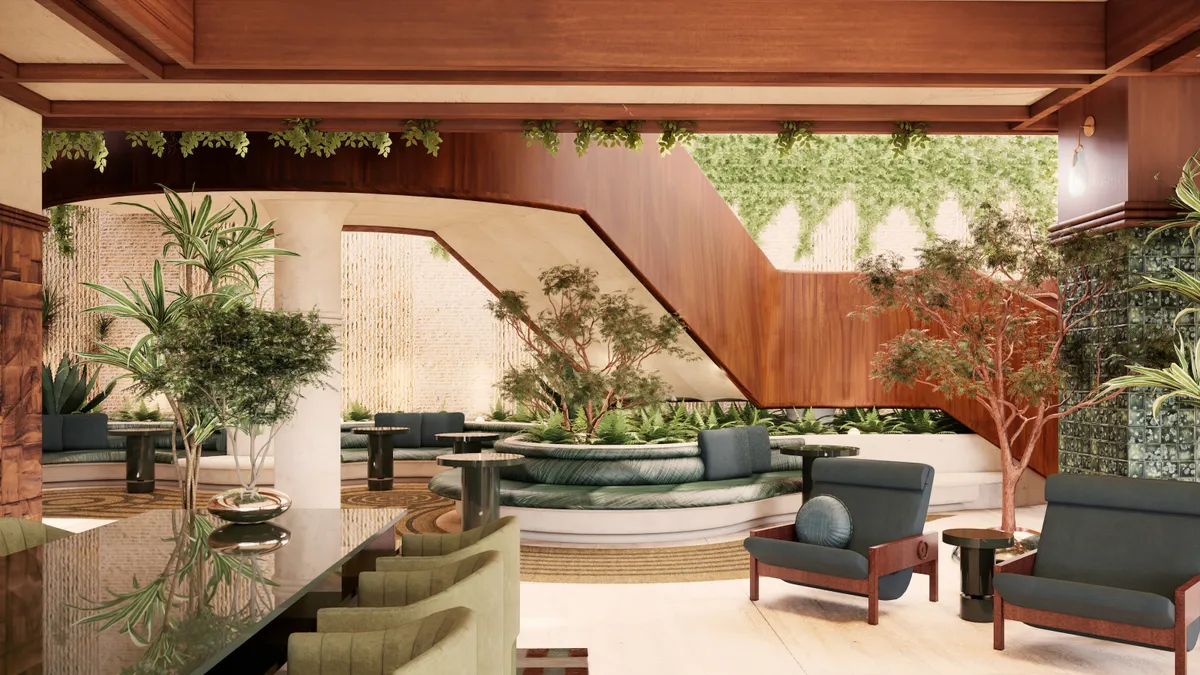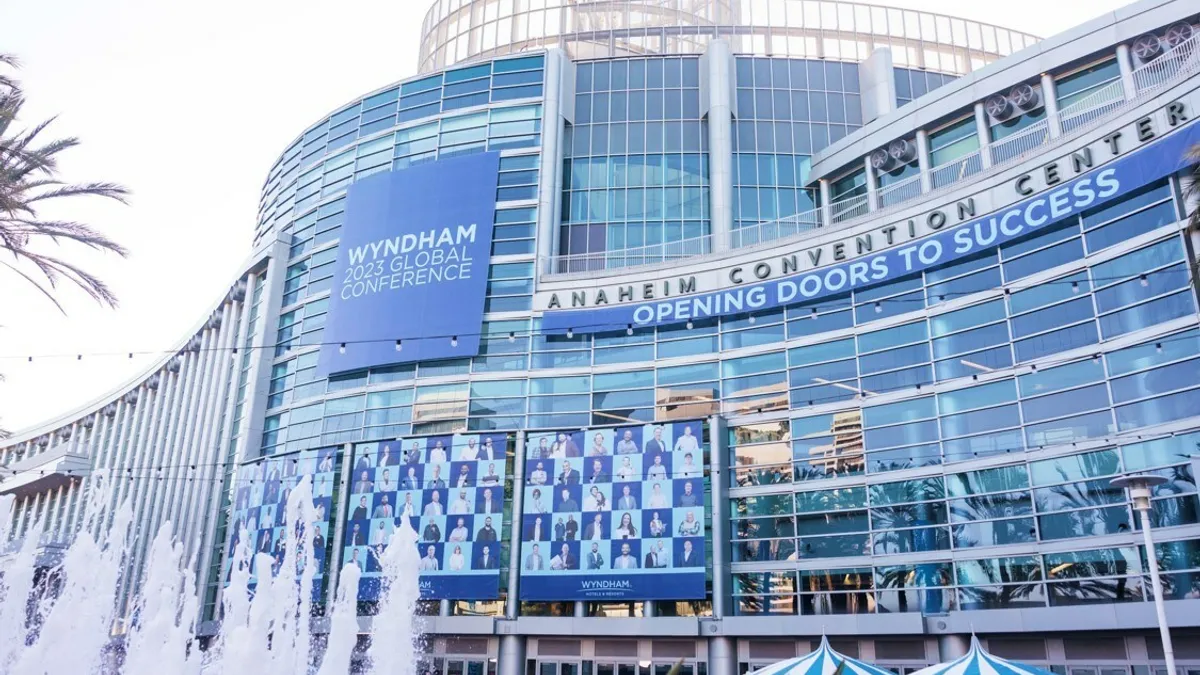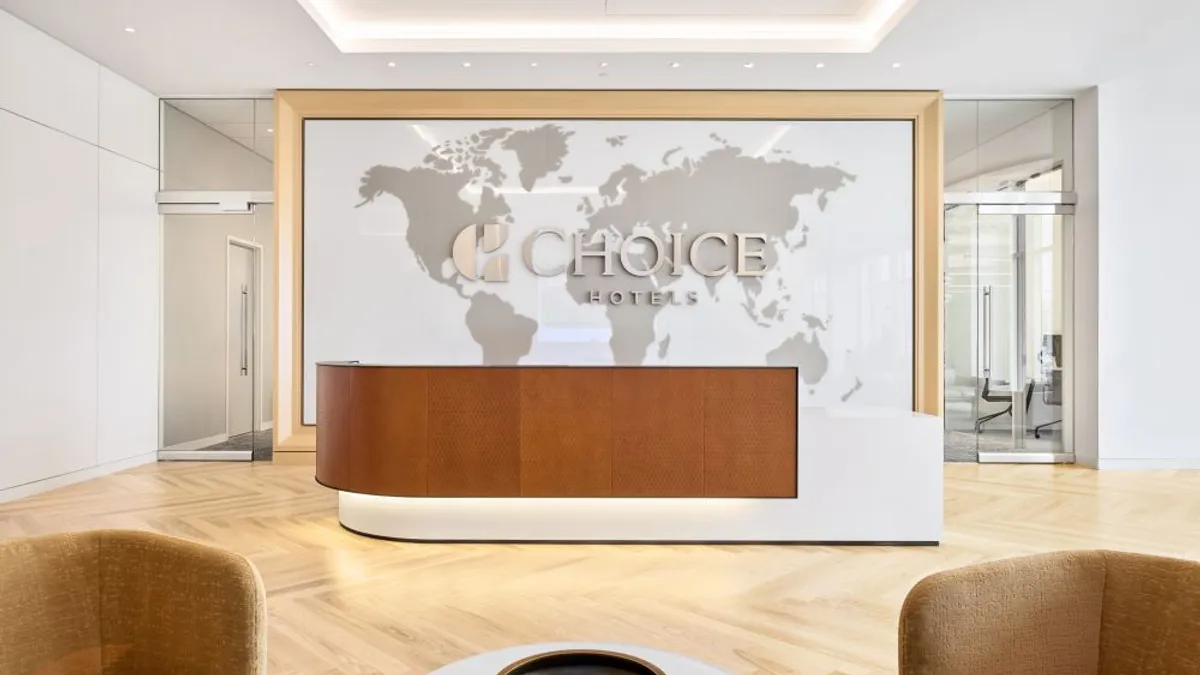Savannah, Georgia, has long had the characteristics of a premier hospitality market: historic architecture, coastal charm and a vibrant arts and dining scene. The city is becoming even more desirable, though, as travelers increasingly seek unique accommodations design and immersive experiences.
Boutique and luxury hotels are popping up in Savannah’s historic district, and business drivers in the region are bringing a mix of travelers, not just traditional vacationers. This will bode well for the market amid broader economic uncertainty nationwide, hospitality pros shared.
As the Southern city thrives amid a shifting tourism landscape, Hotel Dive sat down with local hoteliers, travel professionals and industry experts to learn more about what’s driving Savannah’s hot hospitality market.
Tourism takes center stage
Savannah’s tourism industry has seen significant growth after emerging from the COVID-19 pandemic on solid footing, Joseph Marinelli, CEO of the city’s destination marketing organization, Visit Savannah, told Hotel Dive.
Last year, specifically, Savannah-Chatham County welcomed 12.9 million visitors, 2.3% more than in 2023, Visit Savannah reported. Visitor spending, meanwhile, increased 4.5% year over year in 2024 to $4.1 billion.
The market saw 7.2 million overnight visitors in 2024, and travelers’ average length of stay was 2.9 nights, according to the destination marketing organization.
The market, Marinelli shared, sees demand from a mix of travelers.
Business is booming
While leisure tourists have historically driven visitation to Savannah, business and group travel have recently ramped up, particularly after the city unveiled a $276 million expansion of its convention center earlier this year, according to Marinelli.
The project doubled the center’s exhibit hall space to 200,000 square feet and added a 40,000-square-foot ballroom, 15 meeting rooms and a 900-space parking garage.
“[Savannah] has grown rapidly over the past several years and has the combination of both leisure demand and business demand that tends to drive successful markets from a hospitality perspective.”

Noah Silverman
Marriott Global Development Officer for the U.S. and Canada
The facility’s expansion “tees us up for larger conventions and new customers in the future,” Marinelli said.
JLL Hotels & Hospitality Group Americas President Dan Peek echoed the sentiment, telling Hotel Dive the expanded convention center could positively impact demand for area hotels — as could more businesses locating to the market.
Hyundai Motor Group, for example, opened an expansive vehicle assembly and battery plant just outside of Savannah proper, part of HMG’s $12.6 billion investment in Georgia and the largest economic development project in the state’s history, per the company.
Meanwhile, many of the larger, full-service luxury hotels in Savannah have sizable meeting space that is “driving group corporate demand,” Michael Cummings, a managing director at CBRE, told Hotel Dive. He noted that Savannah has also become a popular drive-to destination from Atlanta; Charlotte, North Carolina; and other nearby markets.
Savannah “definitely tops the list” for meeting planners because of the same things that attract leisure guests: the city’s historic character, restaurant scene and activities for travelers to enjoy in their free time, Cummings said.
Sports fans are also taking advantage of the city’s leisure offerings, Marinelli said, noting that sports tourism is a driver of group business to the market.
This year, Savannah will host the Southeastern Conference Women’s Volleyball Tournament and the Savannah Southern Half marathon, both in November, Marinelli shared.
Leisure still leads
Traditional leisure travel, though, is what Savannah is famous for, Peek said. Stuart Wallace, CFO of Obstinate Hospitality, the group behind The Douglas boutique hotel, which opened in Savannah last month, attested to this, telling Hotel Dive, “most of our guests are visiting for leisure trips.”
The draw for leisure travelers is Savannah’s well-preserved historic district, allowing guests to immerse themselves in the destination, the pros shared.
The Douglas’ building, for example, has “been part of Savannah for over a century, and we made a point to preserve its character while reimagining it for today’s traveler,” Wallace said.
“People connect with that sense of history,” he added. “They feel like they’re living in Savannah’s story, not merely visiting it.”
Travelers, particularly those in the luxury segment, increasingly seek experiential accommodations as well as unique design and food and beverage offerings, leading many to choose boutique hotels over more homogenized brand options, Wallace noted.
High-end travelers “seek a stay that feels authentic and connected to the city’s past, not just another cookie-cutter experience,” Wallace said. “Our guests want to feel part of Savannah’s story, and that means staying somewhere with character, depth and personality.
“Today’s traveler wants more than a bed for the night; they want the stay itself to be part of the experience,” he added. “At The Douglas, that might be cocktails in our guest-only bar or stepping out the front door directly into the historic district. Everything we do is meant to deepen the connection guests have with the city.”
Another Savannah hotel catering to travelers’ — and locals’ — appreciation for authentic design, experiences and connection is Municipal Grand, which also opened last month. The hotel, the first under cocktail-forward lifestyle hotel brand Midnight Auteur, is centered on a pièce de résistance lobby bar and restaurant.
The hotel’s “lively, cocktail-forward atmosphere is a natural fit for Savannah, where visitors are seeking distinctive, memorable stays that feel connected to the local culture,” Ryan Diggins, partner and CEO of Midnight Auteur, told Hotel Dive.
Hotel supply grows
In addition to The Douglas and Municipal Grand, Savannah is getting a sweeping number of new hotels, as developers “see nothing but upside potential in the market,” Marinelli said.
Marriott International is one hotel player that sees significant growth opportunities in Savannah. The company recently opened multiple hotel projects in the market and is underway on another.
Marriott converted an old apartment building under its Apartments by Marriott Bonvoy brand. The property, redesigned as The Ann Savannah, offers 157 apartment-style units and updated amenities.
Given the historic nature of many of the buildings in Savannah, adaptive reuse is a popular way for hotels to reimagine outdated facilities, JLL’s Peek noted.
Marriott also opened the AC Hotel by Marriott Savannah Historic District earlier this year. And the hotel company is underway on a Ritz-Carlton-branded hotel and residences.
Marriott Global Development Officer for the U.S. and Canada Noah Silverman told Hotel Dive that across the greater Savannah market, the hotel company has 26 open hotels and 25 more in the pipeline.
“Savannah has been a fantastic hotel market,” Silverman said. “It has grown rapidly over the past several years and has the combination of both leisure demand and business demand that tends to drive successful markets from a hospitality perspective.”
Choice Hotels International and Hilton have also expanded in the city in recent years. Hotel supply in Savannah has increased 5% in the past year alone, according to JLL.
Uncertainty rears its head
While increasing hotel supply signals that the market is desirable to developers, it is also contributing to muted hotel performance, Marinelli noted.
“New inventory coming into the market will probably hold our [performance] numbers down a little bit,” Marinelli said, noting that tariff and inflation concerns, as well as the broader economic uncertainty negatively impacting markets nationwide, has also hit Savannah.
RevPAR in Savannah in the first half of 2025 stood at $106.29, down 4.5% year over year, according to JLL research obtained by Hotel Dive. Demand has contracted each of the past seven months, leading to occupancy declines, JLL shared.
Most of the demand declines have hit the transient segment due to a pullback in consumer spending, according to JLL. In April, Deloitte reported that President Donald Trump’s trade policy actions were slated to fuel economic uncertainty and curb consumer purchasing power.
In June, and again in August, CoStar and Tourism Economics lowered growth outlooks for 2025 and 2026 U.S. RevPAR and other metrics, citing macroeconomic concerns. Hotel companies reported widespread U.S. revenue declines in the second quarter of 2025 as well.
Like other markets nationwide, Savannah has seen booking windows contract, Diggins shared. At Municipal Grand, most reservations are made within two weeks of arrival, he said.
Savannah is in a good position to weather an economic storm, though, as the market appeals to luxury consumers who continue to prioritize travel, Wallace noted.
“Experiential travel and a preference for smaller, curated properties will keep driving demand,” he said.
Meanwhile, Silverman said the market “continues to grow in desirability as a leisure destination,” adding that recent performance declines could be attributed to the broader macroeconomic climate, not market-specific factors.
“I continue to be bullish on the long-term prospects of the city,” Silverman said, adding that “a lot of our development community is as well, as evidenced by the size of our pipeline there, and the ongoing interest in expanding the offerings in the city.”


